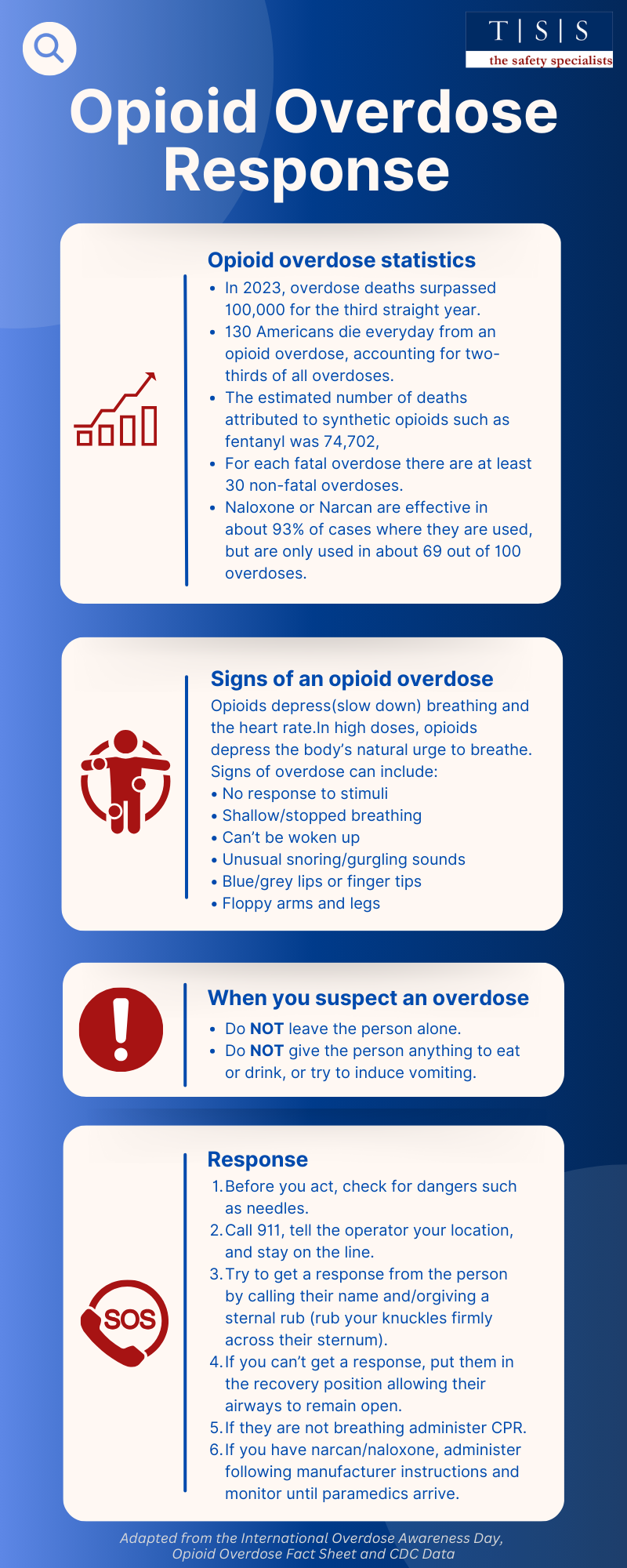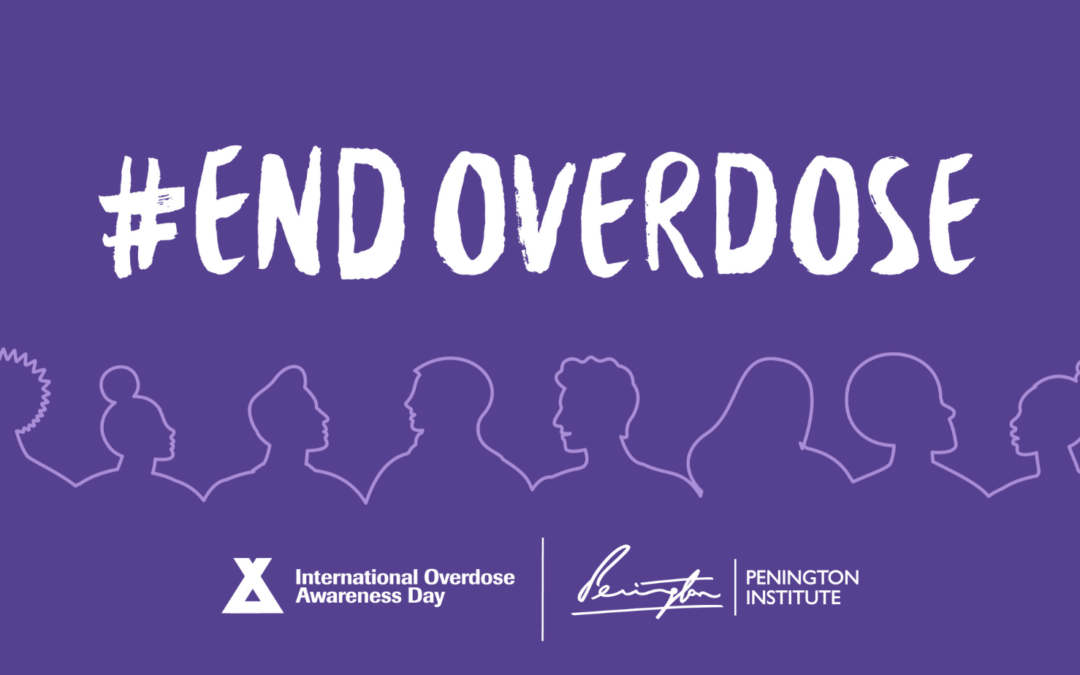Overdose Awareness Day brings awareness and education to reduce and prevent death from overdose. The 2024 theme is “Together We Can”, highlighting the strength of coming together and standing in support of those connected to the tragedy of overdose. It is important to connect with the prevention educators in your area to learn more about the resources available. We never know when we’ll need to make a connection for someone.
In 2023, an estimated 107,543 people died of drug overdoses in the United States, a slight decline from previous years, but still historically high.
The grim toll represents Americans’ struggle with powerful synthetic drugs, in particular the synthetic opioid fentanyl, known to be up to 100 times stronger than morphine. More than 1 million people have died of a drug overdose since 2001, according to the Centers for Disease Control and Prevention.
According to the data, opioids continue to be the leading cause of overdose deaths. The National Center for Health Statistics (NCHS), attributed more than 74,000 deaths to fentanyl, a synthetic opioid 100 times stronger than morphine. Another 36,000 deaths were attributed to methamphetamine. Alaska, Oregon and Washington all saw increases in drug overdose deaths of more than 27%. While states like Nebraska, Kansas, Indiana and Maine all saw declines, according to NCHS.

Rapid Response is Key
Overdoses are a medical emergency but they are preventable when friends, loved ones and bystanders know how to respond quickly. Call 911 and then administer first aid.
The response will differ depending on the type of drug or combination of drugs that have been used. For example, a person who experiences an overdose from a drug that depresses the central nervous system (such as an opioid) may lose consciousness and stop breathing. Yet a stimulant drug overdose may lead to overheating, a cardiac event, or symptoms relating to neurotoxicity.
Here are some strategies for responding to an opioid overdose:

Narcan/Naloxone Saves Lives
Being trained in naloxone administration may save a life.
Narcan temporarily reverses the effects of opioid overdose, allowing the person to breathe again while help is on its way. It works by blocking the body’s opioid receptors which then prevents the drugs from working. It typically lasts for 30 to 90 minutes after first being administered.
Narcan has been in use for decades because it is easy to administer with few side effects and no capacity for misuse.
Contact TSS offices to find a Narcan kit and for training on how to use it.

